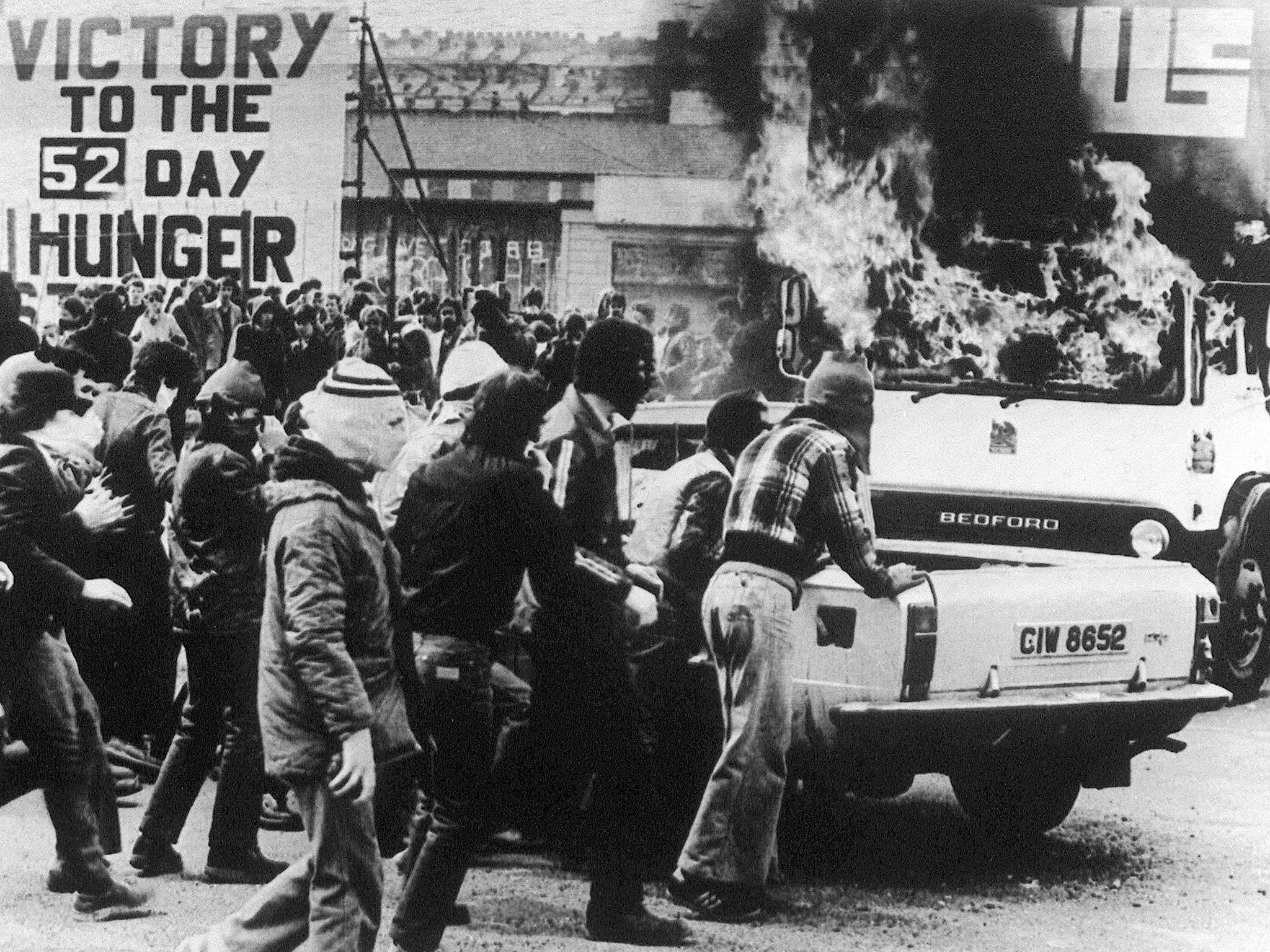Undercover British soldiers accused of killing unarmed civilians in Northern Ireland
Former members of Military Reaction Force unit tell Panorama they would carry out drive-by shootings and broke army regulations

Your support helps us to tell the story
From reproductive rights to climate change to Big Tech, The Independent is on the ground when the story is developing. Whether it's investigating the financials of Elon Musk's pro-Trump PAC or producing our latest documentary, 'The A Word', which shines a light on the American women fighting for reproductive rights, we know how important it is to parse out the facts from the messaging.
At such a critical moment in US history, we need reporters on the ground. Your donation allows us to keep sending journalists to speak to both sides of the story.
The Independent is trusted by Americans across the entire political spectrum. And unlike many other quality news outlets, we choose not to lock Americans out of our reporting and analysis with paywalls. We believe quality journalism should be available to everyone, paid for by those who can afford it.
Your support makes all the difference.A unit of British soldiers operating in Northern Ireland during the Troubles acted “like a terror group” and killed unarmed civilians, former members have suggested.
Speaking out for the first time to the BBC’s Panorama programme, the former soldiers said they had been tasked with “hunting down” the IRA in west Belfast and admitted they broke the law while doing so.
The unit, called the Military Reaction Force (MRF) and disbanded in 1973, would carry out drive-by shootings against unarmed people on the street without any independent evidence they were part of the IRA.
The ex-members said their elite status meant they didn’t believe military regulations against opening fire unless their lives were in immediate danger applied to them.
One told Panorama: “We were not there to act like an Army unit, we were there to act like a terror group.
“We were there in a position to go after IRA and kill them when we found them.”
The revelations about the army’s activities come as the families of victims in the conflict expressed outrage at a suggestion to bring an end to prosecutions for Troubles-related killings.
Despite the fact that more than 3,000 deaths are being investigated by detectives from the Historical Enquiries Team (HET) as part of the peace process, Northern Ireland Attorney-General John Larkin said: “It strikes me that the time has come to think about putting a line, set at Good Friday 1998, with respect to prosecutions, inquests and other inquiries.”
David Cameron quickly rejected the proposal, which would have ruled out any further inquests and inquiries into killings during the 30-year conflict.
Read more: Northern Ireland still not ready to forget
The most notorious unjustified Army killings happened at Bloody Sunday in Londonderry in 1972, when soldiers opened fire on innocent civil rights protesters.
The reaction force had around 40 hand-picked men from across the British Army who addressed each other by first name and dispensed with ranks and identification tags.
They operated at the height of the Northern Ireland conflict early in the 1970s, when bombings and shootings by paramilitaries happened almost daily.
Another ex-member said it was part of his mission to draw out the IRA and minimise its activities.
“If they needed shooting they'd be shot,” he said.
The Army has a series of rules known as the Yellow Card, which guides when a soldier can open fire lawfully.
Generally, lethal force was only lawful when the lives of members of the security forces or others were in immediate danger.
Another soldier said: “If you had a player who was a well-known shooter who carried out quite a lot of assassinations... it would have been very simple, he had to be taken out.”
According to Panorama, seven former members of the force believed the Yellow Card did not apply to them and one described it as a “fuzzy red line”, meaning they acted as they saw fit.
The soldiers said they would shoot unarmed targets, driving by suspect groups and opening fire, even if they did not see anybody brandishing a gun.
Among those they killed, in May 1972, was father-of-six Patrick McVeigh.
His daughter Patricia said: “We want the truth. We don't want to stop until we get the truth.”
Panorama: Britain's Secret Terror Force is on BBC One at 9pm tonight.
Join our commenting forum
Join thought-provoking conversations, follow other Independent readers and see their replies
Comments